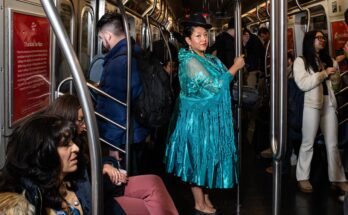Barranquilla’s nickname is “that of the sand”, due to this Colombian city’s sensitivity to wind, rain and the passage of streams and ravines through urban areas, phenomena that once covered the streets in sand. Barranquilla, the fourth most populated city in Colombia – 1.2 million inhabitants – and the fourth in terms of contribution to GDP, is a coastal city 100 kilometers from tourist Cartagena. Known for its carnival and for being the birthplace of Shakira, it was also covered by another type of sand: for years it suffered the ravages of corruption, violence and crime, the lack of infrastructure and public services or dirt. For almost two decades the history of this city has completely changed, and it is perceived as the capital of urban, technological and sustainable efficiency and innovation of Colombia. The municipal administrator, Ana María Aljure, believes that everything was left behind in 2008, when the Cambio Radicale party took over the position of mayor and began its government task, especially with Alejandro Char in two periods (2008-2011 and 2016-2019). Char, the head of an influential family in the Colombian economy and politics that arouses admiration and suspicion, has been mayor of the city again since 2024.
Data battery
“In 2008, Barranquilla was an invisible city, no one believed in it, the banks did not lend a single peso, because it was a bankrupt city, according to the law of restructuring of liabilities. Added to this was that those who had governed the city were immersed in corruption problems. The people did not believe in the city, neither the companies nor the banks”, summarizes Aljure in the position that Barranquilla had in the hall of the Smart City Expo World Congress, which was held at the Fira de Barcelona. facilities in early November. His view, which he supports with a range of data on economic improvement, security, foreign investment and sustainability, is that since Char became mayor the city has changed direction. “He started doing groundwork, a strategic change from a city that was not feasible to a project that has become an international model of public management, because it is based on results,” says Aljure, who believes that “strategic vision gives results.”
The city today has a GDP of 12.5 billion dollars and its port handles 7.4% of Colombia’s total goods. With industrial activity (four free zones and 30 industrial parks) and tourism activity (more than 200 hotels) booming, Aljure believes that the formula for recovery is efficient management and public-private collaboration. “When Char arrived in 2008, the first thing he did was put the house in order: reviewing what we owed to whom, defending the city’s interests and managing the finances well, ending up with the concession of collecting a tax that was 19%. Finally, he focused a lot on social programs and projects,” he explains.
Aljure is, in practice, a deputy mayor who takes care of the daily needs of the city, and who combines her institutional role to attract foreign investments with close contact with the people: it is normal for her to organize activities with different communities in which she sings and dances to promote cleaning campaigns or urban transformations such as that of the Gran Malecón, where an imposing statue of Shakira stands. Aljure also has time to travel and let the world know about the city’s projects, such as the visit he made to Barcelona, from where he went to Paris to continue attracting investments. He defends the transformation that Barranquilla has brought about, from literally removing sand from the streets by asphalting them and making it easier for ambulances, buses and police cars to arrive where they were previously impossible to see, to better financial, urban and business management. «Everything is a virtuous circle, because through better management of finances and resources, banks and companies begin to trust», he underlines.
The transformation has passed, Aljure explains, from schools – “we had 60,000 children out of classrooms because the buildings were falling apart or because there weren’t enough of them,” he says – and from hospitals to new natural gas buses and asphalted public roads, through the improvement of vocational education, the revitalization of industrial areas and the construction of parks, avenues and the reactivation of biodiversity areas such as the Ciénaga de Mallorquín. There have also been substantial changes on the security front: the city now has around 1,200 video surveillance cameras and has data analysis equipment used to fight crime. “Since 2008, homicides have decreased by 43%, shoplifting by 62% and extortion by 88%. Technological development makes these results palpable and evident,” explains Aljure.
According to the city manager, Barranquilla, which hosted the OECD Local Development Forum this year – the first time it was held outside Europe – is set to take on greater weight in Colombia and in relation to foreign investors. Even in the current situation, marked by growing tension between the governments of Colombia and the United States, led by Gustavo Petro and Donald Trump. “Beyond Colombia, Barranquilla is a thriving city that has great infrastructure and human capital, with very happy and willing people, and which has many advantages for businesses. We have built a highway to bring in foreign investments. The rest does not affect us, we have seen that the various sanctions have not been against the country, and we continue to knock on doors and show all the good things we have.”



